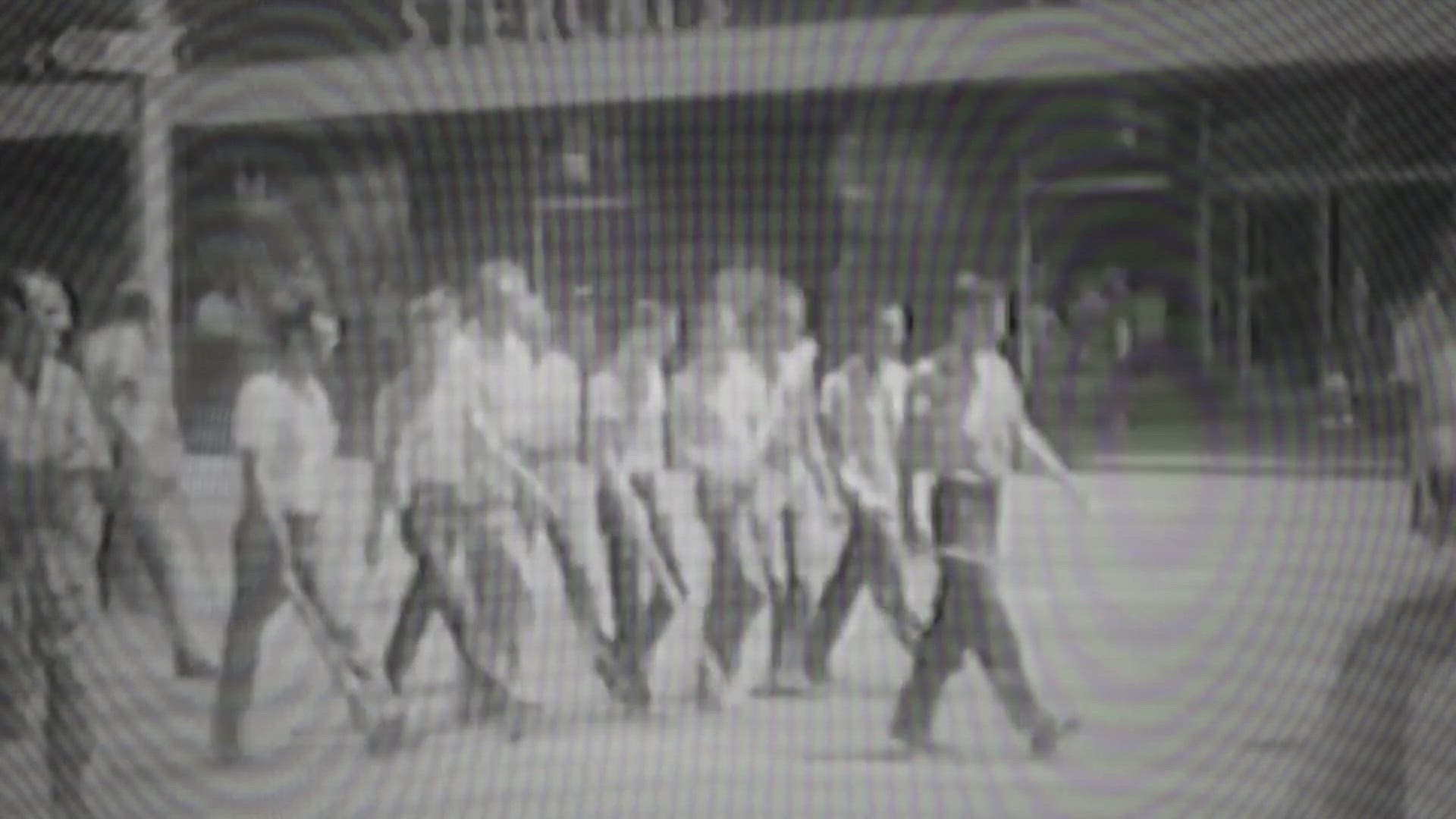JACKSONVILLE, Fla. — It’s one of the most notorious days of racial violence in Jacksonville history, Ax Handle Saturday.
Tuesday marks the 63-year anniversary of that dreadful day. Two Jacksonville icons still wear the scars of Aug. 27, 1960.
Retired Lieutenant Colonel, Alton Yates and former Jacksonville Sheriff Nathaniel Glover, sat down with Good Morning Jacksonville anchor, Keitha Nelson to reflect on their life-altering experiences that day.
"Just as we got seated, somebody saw us and they started moving into that store and beating us with the ax handles,” Yates said while describing a sit-in he helped organize at a segregated lunch counter in Downtown Jacksonville. “I got a scar on the back of my head from one."
Yates served as vice president of the NAACP Youth Council at a time when racial tension grew in Jacksonville and throughout the South. The cries for desegregation grew louder and the opposition, brutal.
Yates now 63 years later, his hair is now gray, and it covers the spot where the handle of an ax was used to hit him.
"What we couldn't understand is why the police didn't stop these people,” Yates said. “They knew they were coming."
He recalls warnings whirling around town of the possibilities ahead that day.
"On the morning of that demonstration, we had gotten word that there was a good possibility that we were going to be attacked, that the Klan was aware of the demonstration and that they were going to be there," Yates said.
Yates explained the Ku Klux Klan's existence and intentions were well-known. Rallies filmed in 1960 include a report from once WFGA-TV, now First Coast News.
"1960 brought WFGA permission to film activities rarely seen by an outsider,” an announcer is heard in FCN archival video describing the scene. “Fiery crosses and Klansmen fully robbed and hooded."
Yates remembers seeing a pickup truck parked at what was Hemming Park before the mayhem ensued on Aug. 27, 1960.
"We saw these men rushing to the back of a truck and someone on the back of this truck distributing from where we were we didn't know at that time that they were ax handles, baseball bats and that sort of thing," Yates said.
Fear aside, the youth demonstration went on as planned. And as Yates sat at the segregated Woolworth's Lunch counter on the corner of Main and Forsyth streets, a young Nathaniel Glover was also downtown that day working as a dishwasher at Morrison's Cafeteria. When he left work that day and stepped outside, "They quickly surrounded me with those ax handles, and they were actually hitting me with the ax handles calling me names," Glover said.
The weapons used now describe that dreadful day in Duval County. The blood that stained the city's streets changed lives.
“I ran, I was so afraid, terrified does not explain it strong enough,” Glover said. “I can remember going home and laying across my bed, crying. I was not crying because I was hurt. I was crying because I ran. I made a vow then I would never not do something that I should do because of fear. And that shaped my life. It gave me the courage to run for sheriff."
Glover would go on to make history in 1995, becoming the first Black Sheriff in the state of Florida since the reconstruction era.
"It took us years to move from total segregation to integration to being acceptable and working together," Yates said. "It took years to accomplish that."
Yates served the city under several mayoral administrations, helping to shape the city that shaped him.
"And almost overnight, it seems as though we're trying to erase all of the progress that we've made," Yates said.
He's concerned about the path he's helped pave being chipped away.
“The teaching of our history, telling about the struggle that we overcame, so that it is never repeated again,” Yates said. “I mean, then there's this massive effort to do away with it. It's very difficult, very depressing. And I just don't understand how large segments of this community, the white community can remain silent. While this sort of thing is happening, I just, it's hard for me to understand that.”
Glover recently released his memoir, STRIVING FOR JUSTICE, A Black Sheriff in the Deep South. Proceeds from book sales will go to the 'Where they Will Shine' college scholarship fund.

